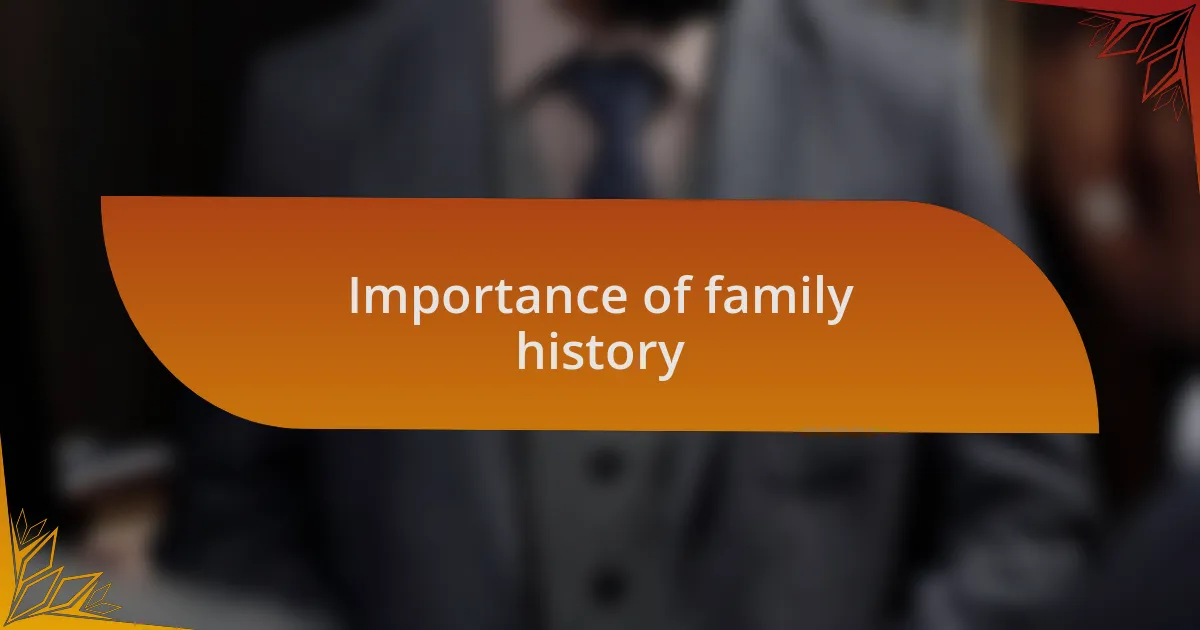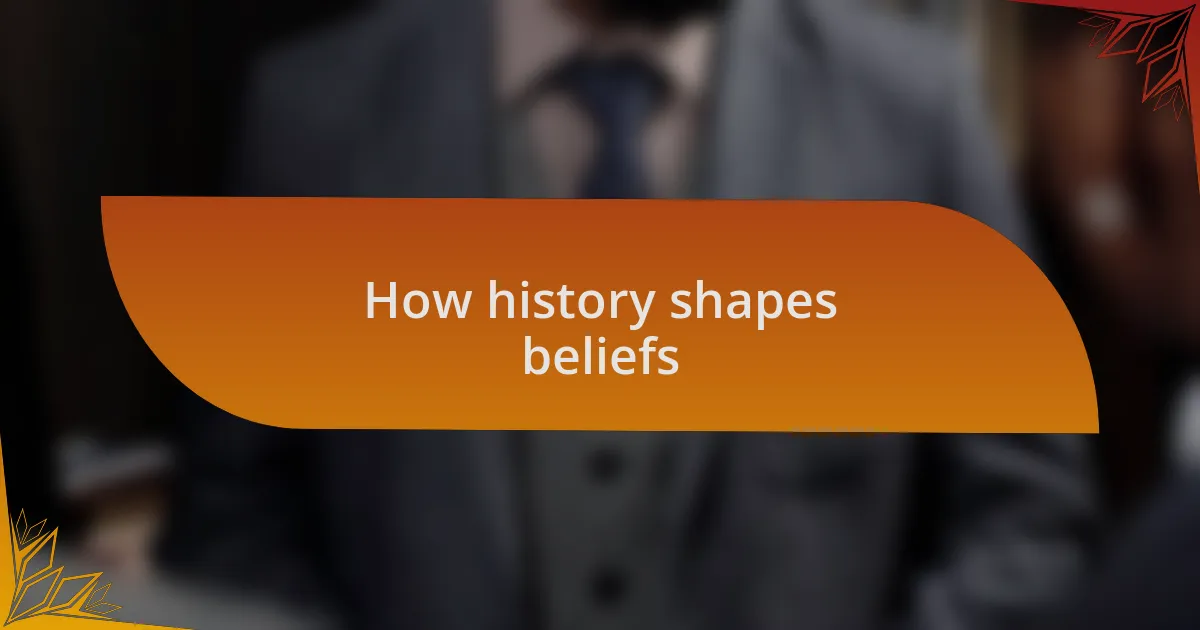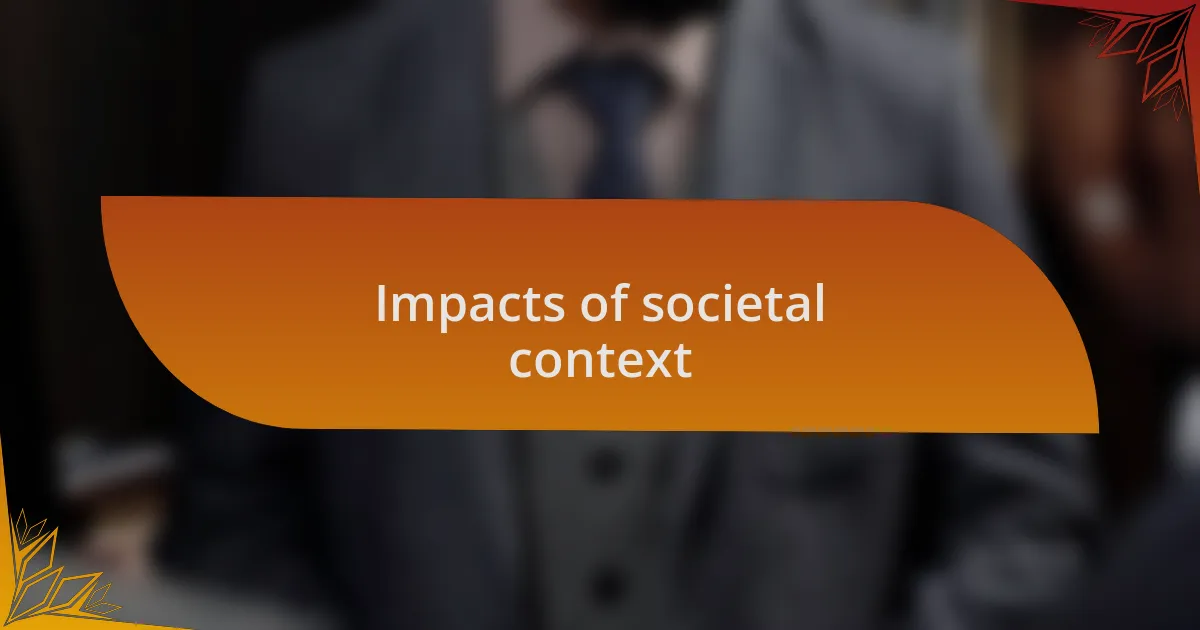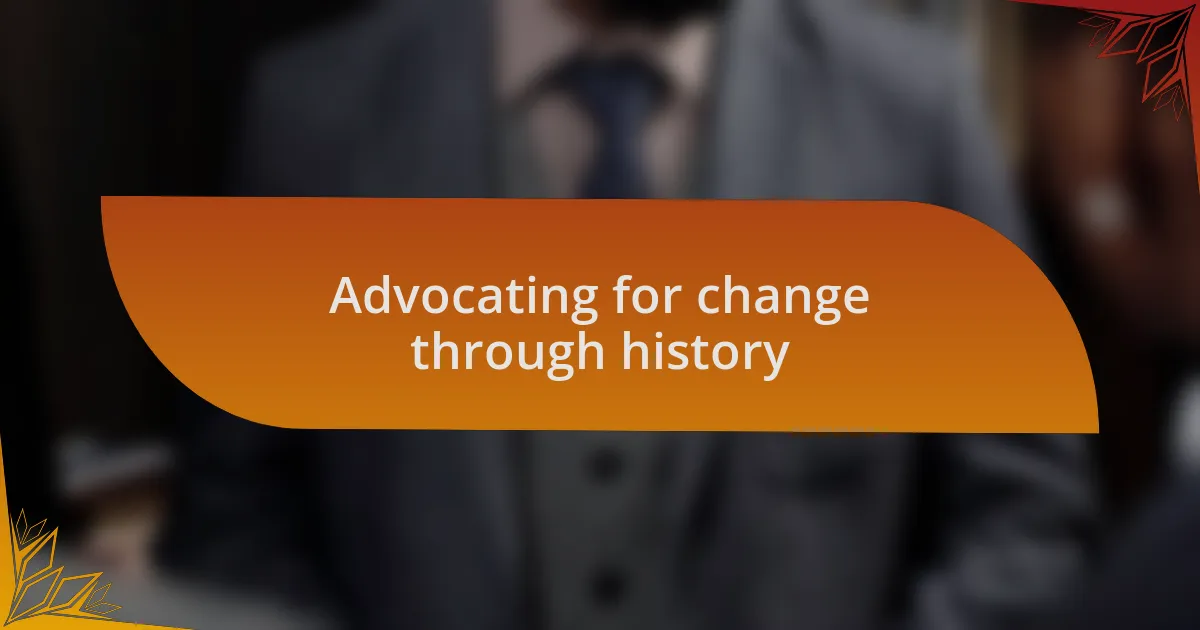Key takeaways:
- Reparations politics involves accountability and justice, rooted in acknowledging historical injustices and systemic inequalities.
- Family history and personal narratives deepen understanding of societal issues, emphasizing the importance of recognizing past struggles in advocating for reparations.
- Experiences of discrimination and resilience within families illustrate the ongoing impacts of these injustices, stressing the need for both recognition and education in the reparations discourse.

Understanding reparations politics
Reparations politics can seem complex at first glance, but it’s fundamentally about accountability and justice. When I learned about the injustices my ancestors faced, it ignited a fire in me to understand why reparations are necessary. How can we truly heal from past wounds if we don’t acknowledge them and take action?
At its core, reparations involve recognizing the systemic inequalities rooted in history. I often reflect on discussions I’ve had with family members about our lineage; hearing their stories made me realize that many people today still bear the scars of past injustices. Isn’t it just heartbreaking that the impacts of those historical wrongs can still echo through generations?
Furthermore, the debate around reparations prompts us to critically evaluate our society’s moral and ethical obligations. For example, when I think of the educational disparities my family faced, it raises questions about the fairness of our current systems. Shouldn’t those who benefited from these inequalities contribute to rectifying them? This connection to personal history shapes my views, affirming the idea that reparations are not just about money, but about dignity and recognition.

Importance of family history
Understanding the significance of family history transcends mere curiosity; it’s a key to unlocking deeper truths about ourselves and the world around us. I remember a family gathering where my grandmother shared stories of her struggles during the civil rights movement. Those narratives helped me comprehend the long-standing effects of discrimination and violence that still resonate in our lives today. Can you imagine being connected to a legacy so profound that it shapes your feelings about justice?
Family history informs not just our identities but also our perspectives on societal issues. For example, when I look at my family’s journey through economic hardship, it illuminates the structural barriers that have persisted over decades. Reflecting on these experiences made me question—how can anyone ignore the generational impact of such struggles when crafting policies on reparations? It’s remarkable how understanding our roots can deepen our empathy for others enduring similar injustices.
Moreover, the stories passed down through generations often carry lessons about resilience and hope. I recall my father recounting how he fought for better opportunities despite systemic obstacles. This narrative wasn’t just inspiring; it reinforced my conviction that acknowledging our history is essential for seeking equitable solutions today. Do we not owe it to those who came before us to address these injustices head-on? Each family story serves as a poignant reminder that our past shapes not just who we are, but what we strive for in our society.

How history shapes beliefs
Reflecting on history profoundly shapes my beliefs, especially when I think about my great-uncle who faced racial discrimination as a young man. Hearing about his experience of being denied a job solely based on his skin color made me question the accepted narratives around fairness and equality. How can we genuinely understand justice without acknowledging these painful truths?
When my mother shared stories of her family’s migration for better opportunities, it opened my eyes to the persistent inequities within our systems. I could feel her emotions as she recounted the sacrifices made for a brighter future, igniting my passion for social justice. Aren’t we all influenced by the struggles of those who came before us, urging us to advocate for change?
Each chapter in my family history echoes the broader societal issues that we face today. For instance, my grandmother’s tales of resilience during economic downturns remind me of how intertwined our personal journeys are with systemic challenges. It’s hard not to ask myself — if we ignore our collective past, how can we hope to build a more equitable future?

Personal experiences and reparations
Understanding my family’s history deepens my perspective on reparations. I vividly remember my grandfather recounting his experiences as a soldier in a segregated unit during World War II. The pride in his voice was palpable, but so was the bitterness when he explained how upon returning home, he was still treated as a second-class citizen. How can we reconcile the sacrifices made by those like him with a system that offered them no recognition or justice?
During one conversation, my aunt revealed how her family was denied access to certain neighborhoods based on discriminatory policies, which shaped their entire lives. The emotional weight of her words resonated with me; it wasn’t just a story—it was a reminder that the fight for recognition and restitution continues today. Doesn’t it seem only fair to acknowledge the struggles that have lingered for generations?
My cousin’s fight to have his ancestors’ stories taught in schools fueled my realization of how crucial it is to address these historical injustices. We often underestimate the power of education in fostering understanding and empathy. Shouldn’t we all push for a narrative that honors those who’ve been overlooked, ensuring their experiences inform the ongoing discourse around reparations?

Connecting family history to views
Reflecting on my family history helps me grasp how deeply interwoven our past is with modern views on reparations. I remember sitting on my grandmother’s porch, listening to her share tales of her own parents, who were denied land that was rightfully theirs due to systemic racism. The injustice seeped into her voice, revealing how their dreams were shattered and how this legacy of loss continues to impact our family today. How can we ignore the echoes of unfulfilled promises that still reverberate through our lives?
During a family reunion, my uncle passionately discussed the significance of our ancestral roots and how they were shaped by displacement and resilience. It struck me that his words were not just historical facts; they were emotional reminders of what generations before us endured. Isn’t it vital for us to connect those narratives to our current social fabric to advocate for true reparations?
As I dive deeper into these family stories, I realize they push me to challenge the status quo. I recall a heated debate at a dinner table where my siblings questioned why reparations should matter to us personally. I shared my perspective, emphasizing that acknowledging past hardships isn’t merely about guilt; it’s about recognizing how those injustices have unfairly shaped our reality. How can we move forward without fully understanding where we came from?

Impacts of societal context
The societal context in which my family has lived has profoundly shaped my understanding of reparations. Growing up, I often overheard conversations about discrimination my parents faced when looking for jobs, which made me acutely aware of how systemic barriers can dismantle opportunities. These experiences taught me that the threads of injustice are woven into the fabric of our society, and it’s crucial to recognize their lasting impact.
I remember a particularly poignant moment during a community workshop, where participants shared personal stories of their struggle for recognition and justice. Listening to a woman recount her family’s sacrifices made me realize that these narratives are not isolated events; they reflect broader societal issues. How can we confront the reality of reparations without understanding these lived experiences that speak volumes about our collective history?
In examining my family’s journey, I see how societal context has influenced my views on equity and justice. From my grandfather’s tales of hardships during the civil rights movement to my own encounters with bias, it becomes evident that the fight for reparations is not just about the past—it’s about creating accountability for today and future generations. If we fail to acknowledge how entrenched societal norms perpetuate inequalities, can we ever truly advocate for meaningful change?

Advocating for change through history
Advocating for change through history requires us to connect the dots between past injustices and present demands for reparations. I remember sitting at my grandmother’s kitchen table, where she recounted her family’s struggles in a segregated society, her voice tinged with both anger and resilience. Those conversations sparked a fire in me, one that fuels my belief that acknowledging historical grievances is essential to paving the way for future justice.
One specific story comes to mind: my late uncle campaigned tirelessly for civil rights, often risking his safety for the sake of equality. His experiences illustrated the importance of standing up and speaking out, but they also highlighted the need for reparative justice—actions that honor the sacrifices of those who fought before us. How can we effectively advocate for change without honoring the resilience demonstrated by those who came before us?
When I reflect on these pivotal moments in my family’s history, I recognize that advocating for reparations is not just a political stance; it’s a deeply personal mission. Understanding my family’s struggles and triumphs makes it clear that the fight for recognition and restitution must continue. If we are to truly honor their legacy, we must ensure that their fight for dignity becomes a catalyst for transformative change in our society today.